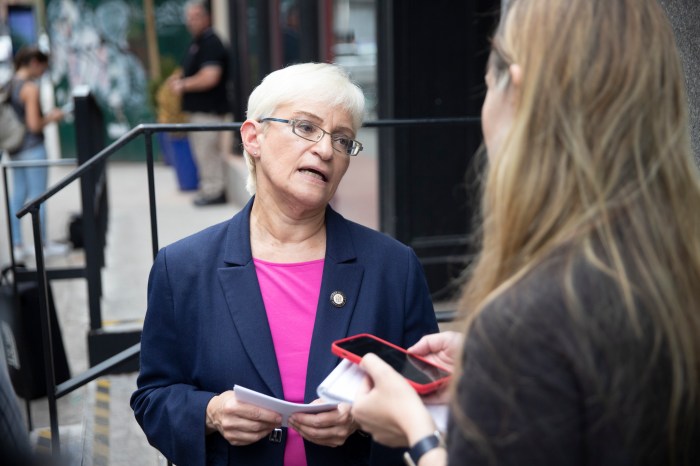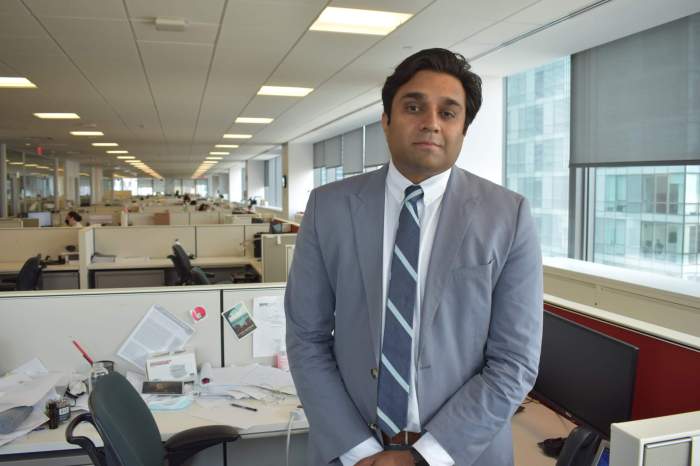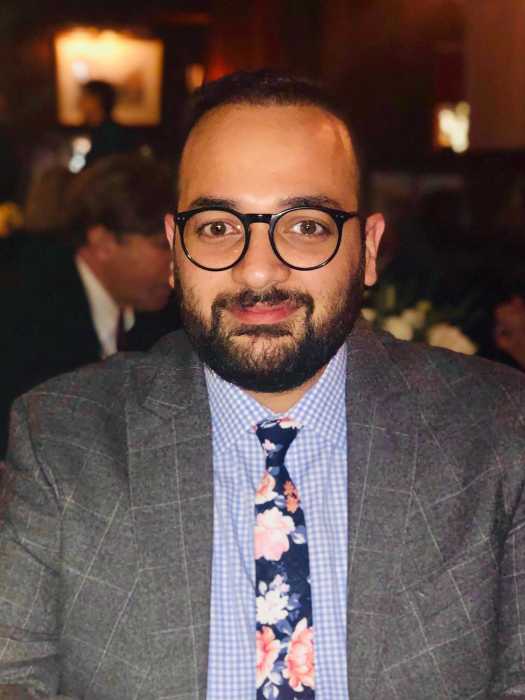The Adams administration is proposing to slash millions of dollars in funding for HIV/AIDS services in the next fiscal year, drawing swift criticism from the City Council’s LGBTQIA+ Caucus and non-profit organizations working to end the epidemic in New York City.
City Health Commissioner Dr. Aswhin Vasan told city lawmakers during a May 13 City Council hearing that the New York City Department of Health and Mental Hygiene is looking to cut $75 million — including $5.3 million in HIV/AIDS funding — when the new fiscal year begins in July. The HIV/AIDS Services Administration’s (HASA) workforce development program, which is within the Department of Human Resources (HRA), is also facing reductions, according to the Council.
Vasan said the city sought to balance the cuts by trimming funding in multiple areas.
“That means no programs were left uncut, and as regrettable as that is, that includes HIV,” Vasan told city lawmakers.
Out lesbian Queens Councilmember Lynn Schulman, who is the chair of the Health Committee, pressed Vasan on why the city resorted to reducing HIV/AIDS funding instead of pulling from elsewhere.
“I think we did as much as we could,” Vasan said. “If we were to reverse the cuts, another direct service program would have to face the pain of these cuts.”

Vasan insisted that 80% of the proposed cuts were identified in areas that “do not impact direct services in New Yorkers” — including office supplies and printing costs, for example — but multiple non-profit organizations working to support the effort to prevent and treat HIV/AIDS are warning that the cuts would negatively impact their clients and their broader operations. Vasan pointed out that the city receives about $200 million in federal funding annually for HIV/AIDS programs, but that cash doesn’t cover everything.
Jason Cianciotto, who serves as vice president of public policy and external affairs at GMHC, an HIV/AIDS service non-profit, said his organization stands to lose $1.1 million in funding, including the loss of as many as 13 staff positions as well as critical treatment and prevention services for hundreds of clients. One of the programs on the chopping block at GMHC and other organizations, Cianciotto said, is an “Undetectables” program, which was launched by Housing Works in 2014 and supports medication adherence for people living with HIV — with the goal of staying undetectable. A program designed to serve older adults living with HIV is also facing budget cuts, he said.
“These programs cut across many different areas of core focus to both help people living with HIV stay on their medications and remain virally suppressed and also prevent people from acquiring the virus,” Cianciotto told Gay City News in a phone interview.
The city’s proposed cuts are coming years after New York missed its original target in the Plan to End AIDS, which called for reducing estimated new HIV infections to 750 across the state and 600 in the city by 2020. In December of last year, Gay City News reported that the most recent annual HIV surveillance report showed there was a small increase in new HIV infections among men who have sex with men.
Cianciotto said those numbers “do not indicate this is the time to make significant cuts in the city’s HIV prevention and treatment programming.”
“This is the mayor’s doing, this is the mayor’s budget, and it’s the mayor who should be solving it for us by restoring these cuts,” Cianciotto said.
Another non-profit, Callen-Lorde Community Health Center, which provides care to LGBTQ New Yorkers regardless of their ability to pay, faces similar budget cuts. The city’s proposal would eliminate a $242,696 contract to help people stay virally suppressed and cut $40,000 from a contract for case management and other services for people who use crystal meth, according to Callen-Lorde.
“Cutting HIV funding will prolong the HIV crisis, harm patients, and make New York sicker,” Callen-Lorde CEO Patrick McGovern told Gay City News in a written statement. “We are calling for these cuts to be reversed immediately — this is a matter of life and death.”
Planned Parenthood, meanwhile, faces a 12% funding reduction from the city, according to a Planned Parenthood of Greater New York representative who delivered remarks at the City Council hearing. Planned Parenthood said that funding supports sexual and reproductive health services as well as educational programs.

Members of the City Council’s LGBTQIA+ Caucus delivered a letter to Mayor Eric Adams on May 20 expressing concern over the funding cuts to HIV/AIDS services and calling on the city to reverse course and restore the contracts. The letter was signed by LGBTQIA+ Caucus Co-Chairs Erik Bottcher of Manhattan and Tiffany Cabán of Queens; Schulman; David Carr of Staten Island; and Chi Ossé of Brooklyn. Councilmember Crystal Hudson of Brooklyn was the only LGBTQIA+ Caucus member who did not sign the letter.
“Critical services that for years have helped New Yorkers living with HIV and AIDS live long and healthy lives are under threat by this administration’s unnecessary cuts,” the lawmakers wrote. “The community-based organizations (CBOs) that are partners with NYC Health Department and HRA to provide HIV treatment and prevention will not be able to deliver programs as a direct result of these cuts. These CBOs serve a client population with a long history of mistrust in government and healthcare-related service delivery. Cutting funding to CBOs that have built a relationship and reputation with clients over decades harms our city’s ability to end the epidemic.”
The City Council’s letter cast doubt on whether the cuts are even necessary. The city lawmakers made the case that the cuts that were previously justified under January’s budget plan no longer reflect the city’s financial state of affairs.
“Since the presentation of that plan, the financial forecast of the city has changed for the positive,” the letter continued. “These unnecessary cuts are dangerous to the health and well-being of New Yorkers living with HIV and AIDS, threaten the fiscal health of agencies that are pillars in the LGBTQIA+ and HIV communities, and undermine the City’s plan to end the HIV epidemic.”
The Mayor’s Office did not respond to a request for comment by deadline on May 21 about the proposed cuts or the LGBTQIA+ Caucus’ letter. After publication, the Mayor’s Office deferred comment to the Department of Health and Mental Hygiene, which emailed Gay City News, stating, “As we identified savings, the priority was to minimize the impact on direct services to New Yorkers and focus on non-service-related programs. New York City is the nation’s leader in HIV prevention. The city will continue to look for the most innovative and effective ways to prevent HIV, as well as continue to invest in the work of the heroic advocates, providers, scientists, and scholars who have gotten us to where we are today, and who deserve our deepest gratitude.”
“We’re going to push [the city] and we’re going to see what we can do,” Schulman, who previously worked for GMHC, told Gay City News in a phone interview. “This is something that is very important to the Council, to the members, and to me — as the health chair and as an open lesbian.”




































